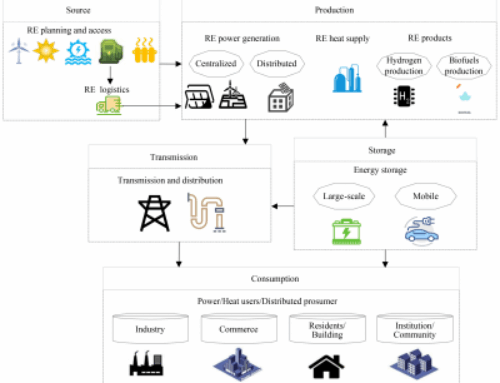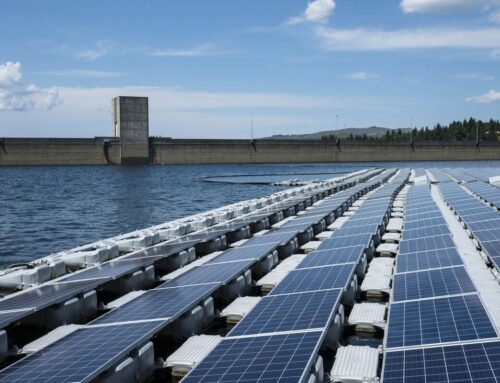Ohio GOP bill declares natural gas is ‘clean energy’
October 28, 2025
Natural gas – a fossil fuel that’s one of the biggest contributors to global climate change – would be considered “clean energy” that’s favored during Ohio’s permitting process, under new legislation proposed Tuesday.
That same legislation would also declare that renewable energy sources like wind and solar power are not “reliable” because they depend on wind and sun, unlike coal or gas plants that can run nonstop.
The legislation may be more than just wordplay – it would “force” the Ohio Power Siting Board, which considers permit applications for energy projects in the state, to favor projects that the bill deems are both clean and reliable, as sponsoring Sen. Mark Romanchuk, a Richland County Republican, described it in an interview.
The term ‘clean energy’ in common conversation refers to sources of electricity or fuel that don’t release carbon dioxide, greenhouse gasses or other pollutants into the atmosphere. That’s mainly solar, wind or, depending on who you ask, nuclear power.
House Bill 294 would turn the phrase on its head, at least legally.
It would grant ‘clean energy’ status to natural gas, the common term for methane. When methane is burnt, it emits carbon dioxide into the atmosphere, the biggest driver of global warming. Methane also tends to leak when it’s extracted and transported, and is a far more potent greenhouse gas than carbon dioxide in the short run.
The legislation is in its early stages and would need to win supporting votes in the Senate, House and from the governor to become law.
The exact legal weight of the change proposed in HB294 is unclear. The legislation cites a section of state law that spells out the regulatory process for developers to apply for permits for energy siting projects like gas-fired power plants (the Lordstown Energy Center being one example).
How the law plays out would be determined by state regulators at the Ohio Power Siting Board who are appointed by the governor, and the Ohio Supreme Court, which is under firm 6-1 Republican control.
HB294 says it declares to be state policy that Ohio:
- “Employ affordable, reliable, and clean energy sources,” whose definitions are tailored around natural gas
- “Ensure … the state prioritizes domestic production”
- “Prioritiz[es] infrastructure necessary to deliver energy to Ohio customers,” presumably a reference to gas pipelines
The legislation is reminiscent of the so-called “chicken bill” of 2022, where Republican lawmakers loaded up a bill once focused on niche poultry policy with late-breaking amendments, including one that dubiously declared natural gas a “green energy.” By the time Gov. Mike DeWine signed the legislation, it included other amendments that enabled the current practice of fracking for natural gas in state parks and established legal protections for the use of pesticides.

Ohio produces more natural gas than all but six states, according to the U.S. Energy Information Administration. That’s thanks to the shale boom that started around 2010. The gas industry says it contributes tens of billions of dollars to Ohio’s economy each year.
Sen. George Lang, one of the Republican co-sponsors, said in committee that natural gas is a cleaner energy source than coal. And Ohio, which sits on massive shale fields underground, should leverage that advantage amid spiking power demands nationwide driven by artificial intelligence, cryptocurrency and an uptick in manufacturing.
“We need a tremendous amount of energy to succeed in business,” he said to lawmakers on the Senate Energy Committee.
In an interview, Romanchuk said Ohio law already considers natural gas to be “green” energy, and he said the new definition is “tied in” to the federal Clean Air Act, landmark environmental legislation that sets ambient air quality standards in the U.S. Since 2009, the U.S. The Environmental Protection Agency has invoked the Clean Air Act to limit carbon emissions in the U.S.
Romanchuk also suggested that while wind and solar power don’t produce greenhouse gasses when they’re operational, the process of building and constructing those operations might.
“Leading up to that, there’s always some sort of environmental impact,” he said.
Euclid Democratic Sen. Kent Smith said in an interview it’s disingenuous to describe natural gas as “clean.” But if the bill is just about pro-gas political messaging, maybe he’ll support it. But if it’s tipping the scales further towards the gas industry when it comes to permitting decisions, the Democrats will likely oppose it.
He lamented what he sees as a political attack on the solar industry. “All of the above [supporting all energy types] is either all of the above, or it isn’t,” he said.
The gas industry, a political powerhouse in Columbus, relies on several advantageous pieces of state law. For instance, it makes heavy use of a longstanding legal concept known as “unitization,” which allows gas drillers to drill underneath the land of non-consenting landowners, so long as the owners of at least 65% of land in a “unit” agree to allow them.
More recently, state Republicans in 2022 allowed the fracking industry to lease out state lands. Since then, the state has accepted bids for oil and gas development in Salt Fork State Park plus five protected wildlife areas around the state (Jockey Hollow, Egypt Valley, Leesville, Keen and Zepernick), all over the objections of environmentalists and conservationists.
Beyond there, the industry is slated to benefit from a major piece of energy legislation passed on a bipartisan basis earlier this year designed to entice more developers of natural gas-fired power plants to build here. Among a sweep of other changes, the legislation slashed property tax rates for power plants.
The legislature has also passed laws blocking cities from prohibiting new houses from natural gas hookup lines.
The flip side of the coin – Ohio law makes renewable energy difficult to build.
In 2021, lawmakers passed legislation that gives townships and county governments broad veto and exclusionary powers against wind and solar developments in town. Conversely, the state gives no such power to locals to reject oil refineries, fracking operations, gas plants or similar projects.
Since then, the Ohio Power Siting Board has rejected six solar projects that together would have produced enough power for hundreds of thousands of Ohio homes. State records available online list no instance of the OPSB rejecting a natural gas plant.

Search
RECENT PRESS RELEASES
Related Post




